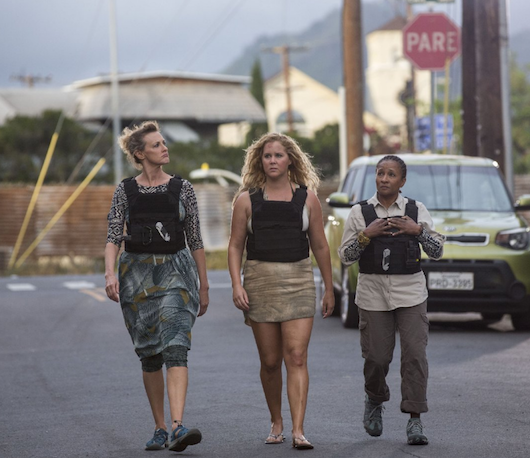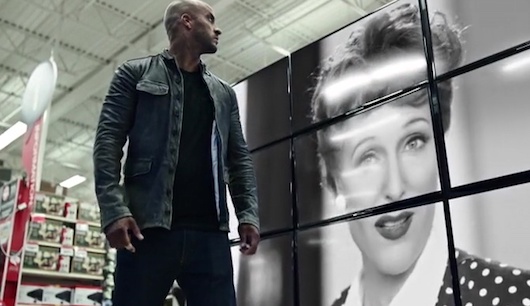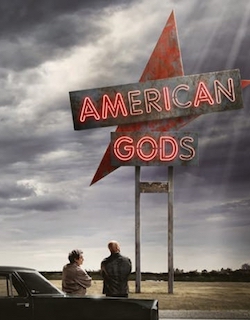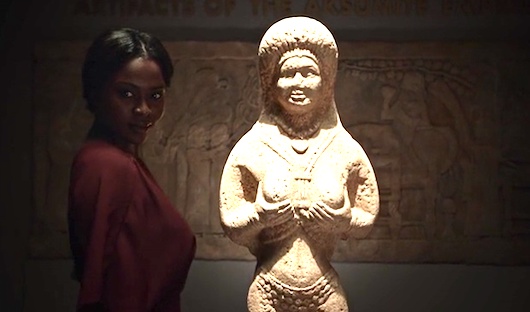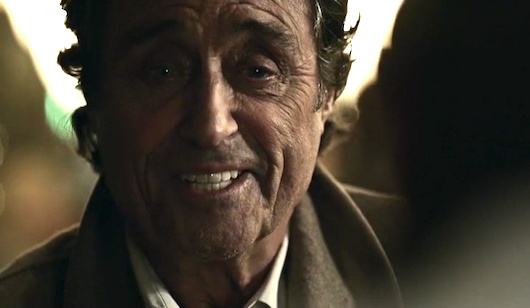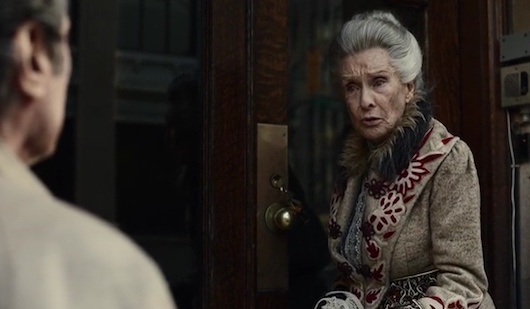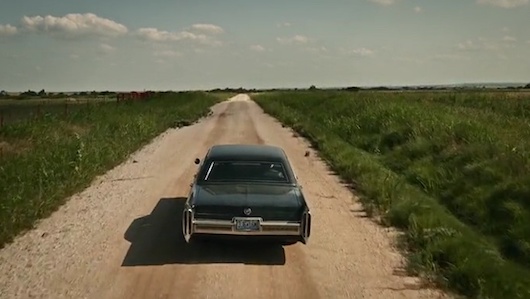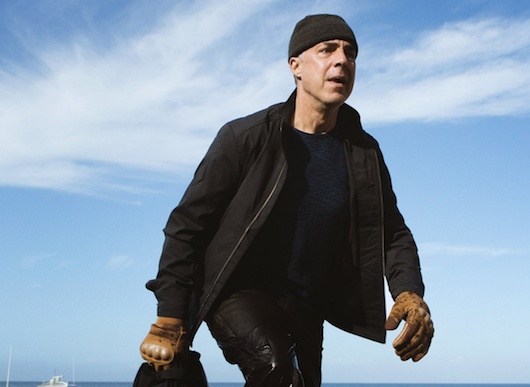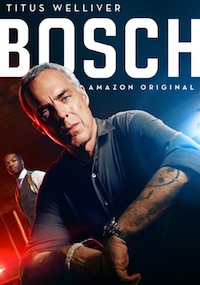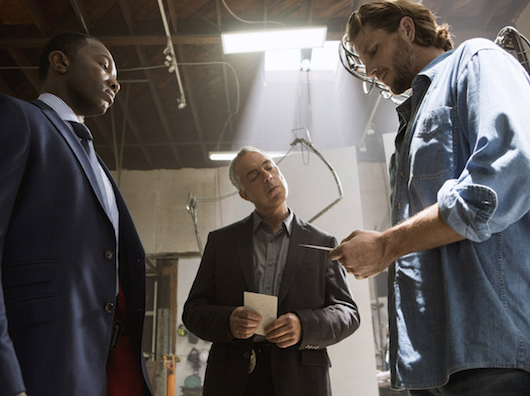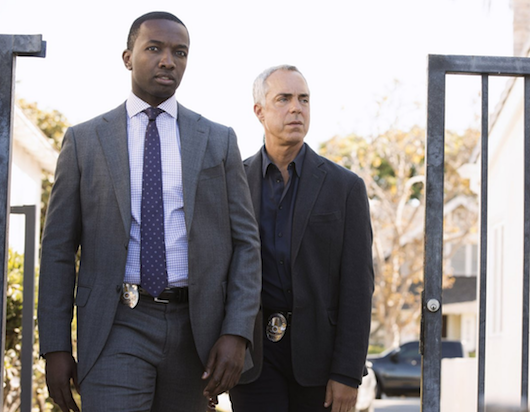 FILM
FILM In Which Amy Schumer Confines Herself To The World
 Thursday, May 18, 2017 at 10:23AM
Thursday, May 18, 2017 at 10:23AM 
Tripwire
by ETHAN PETERSON
Snatched
dir. Jonathan Levine
97 minutes
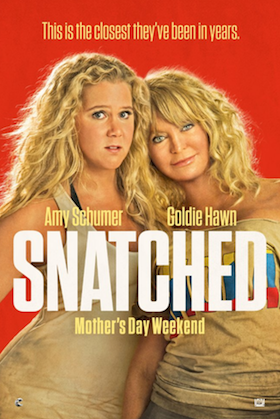 Roger (Christopher Meloni) is a fellow traveler Emily Middleton (Amy Schumer) and her mother Linda (Goldie Hawn) meet in the Colombian jungle. Just 14,000 years ago, the residents of the region farmed maize, potato, quinoa and cotton. These three hikers do not even know what is edible. When Roger takes them to a valley they must cross by swinging on a thick vine, he suggests he go first because "I am the man." Women deal with this kind of sexism all the time. It is called "casual sexism" because it is not really ill-intentioned. Snatched, an important film that also features a scene where a romantic interest inadvertently catches sight of Emily Middleton wiping her vagina with the aid of a bathroom mirror, has Roger swing manfully to his death when the rope breaks.
Roger (Christopher Meloni) is a fellow traveler Emily Middleton (Amy Schumer) and her mother Linda (Goldie Hawn) meet in the Colombian jungle. Just 14,000 years ago, the residents of the region farmed maize, potato, quinoa and cotton. These three hikers do not even know what is edible. When Roger takes them to a valley they must cross by swinging on a thick vine, he suggests he go first because "I am the man." Women deal with this kind of sexism all the time. It is called "casual sexism" because it is not really ill-intentioned. Snatched, an important film that also features a scene where a romantic interest inadvertently catches sight of Emily Middleton wiping her vagina with the aid of a bathroom mirror, has Roger swing manfully to his death when the rope breaks.
Unfortunately and somewhat ironically, Meloni is the best actor in Snatched by far. The film is a substantial improvement on Ms. Schumer's last "comedy," in that it actually features some, but not many, jokes completely unrelated to the fictitious idea that she is unpleasant, unkempt, and unattractive. As her fervent fanbase can readily attest, none of these things are actually true. She is a lovely woman whose oversized cheeks only add to her considerable beauty.
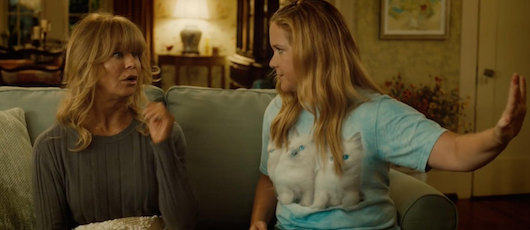
In a key scene where Emily Middleton sunbathes at a resort in Ecuador, she shows off her body, which is also quite impressive. Later, she humbly suggests that her slim physique is due to a tapeworm, which is extracted orally in an extensive and graphic scene. Emily recovers from this parasite in a native village with a disturbing patriarchal culture. She is so offended by the sexism she finds there that she destroys their way of life. These heady subjects all occupy space in the best screenplay Katie Dippold (The Heat) has ever written.
Hawn is not given very much to do in Snatched. The character of Linda Middleton is an overbearing single mother; it is unclear why her relationship with the father of her children fell apart so many years ago, or why she has refused to have any sex in the years that followed. Dippold introduces this woman in a scene where she writes up a rough draft of a dating profile before deleting it in disgust. The profile says that she loves cats and Grey's Anatomy. Later on, we are informed that Linda is learning how to be a sculptor, although her daughter immediately dismisses the singular art she produces.
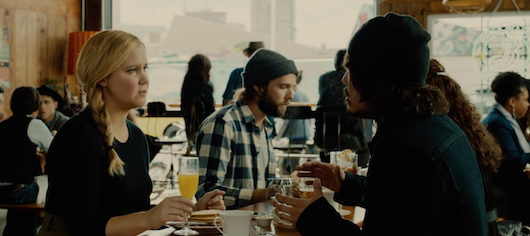
Emily Middleton also has a brother named Jeffrey (Ike Barinholtz). Barinholtz, recently the author of the Kevin Hart comedy Central Intelligence, plays an overly verbal loser in most supporting appearances. As he tries to recover his mother and sister after they are kidnapped and brought into Colombia, he makes a trip to the State Department when he cannot find anyone who will listen to him over the phone. This is a taxing and anxiety-ridden journey, since Jeffrey is substantially agoraphobic and makes his only income teaching piano lessons to young people.
Dippold acquiesces to Schumer's typical self-deprecating humor, but she treats Jeffrey's illness with astonishing sensitivity. The characters of Snatched are all ill, in fact. Whatever technology permitted them to stop farming maize and potatoes, as the first humans did quite easily, has also meant an end to any intrinsic chance of happiness. Emily Middleton's boyfriend Michael (the talented Korean-American actor Randall Park) explains that he is breaking up with her because she has no direction in her life – he is tired of her focus on appearances, and declines to accompany her on a trip which has the intrinsic purpose of subjectifying native cultures while having frequent, unemotional sex.
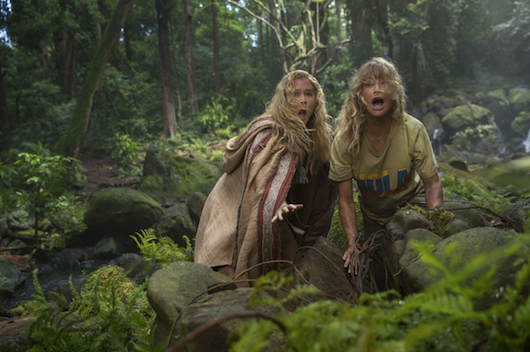
In another less sensitive film, the Middletons would befriend some locals who would show their inherent aboriginality. In Snatched, these white women are outsiders to every part of the culture. They are treated with respect for the most part, and they only come to harm out of their own stupidity. Emily in particular fights back with a velocity of violence never employed by her captors. Using an arrow, she kills the young son of the man ransoming her and her mother, and caves in the skull of another man who is transporting them to nicer living quarters. "You are an excellent murderer," Linda observes of her daughter.

The Spaniard Alonso de Ojeda was the first conquistador to discover Colombia. (He also gave Venezuela its name.) His expeditions were thoroughfares of rape and murder; no women and children were spared by his men. He was so ashamed by his actions that at the end of his life he died penniless and alone after ensuring that people would walk over his grave as punishment for his colonial acts of subjugation.
Emily Middleton's emotional journey is remarkably similar. On her next trip, this time to Kuala Lumpur, she stays within the tourist trappings so that no one else can be hurt. Emily has not altered who she is, she has only the knowledge that her inherent destructiveness must be contained to prevent it from harming the people around her. There is something so completely non-redemptive about Snatched, a refreshing, if depressing testimony to how little of life we are even capable of living.
Ethan Peterson is the reviews editor of This Recording. You can find an archive of his writing on This Recording here.
